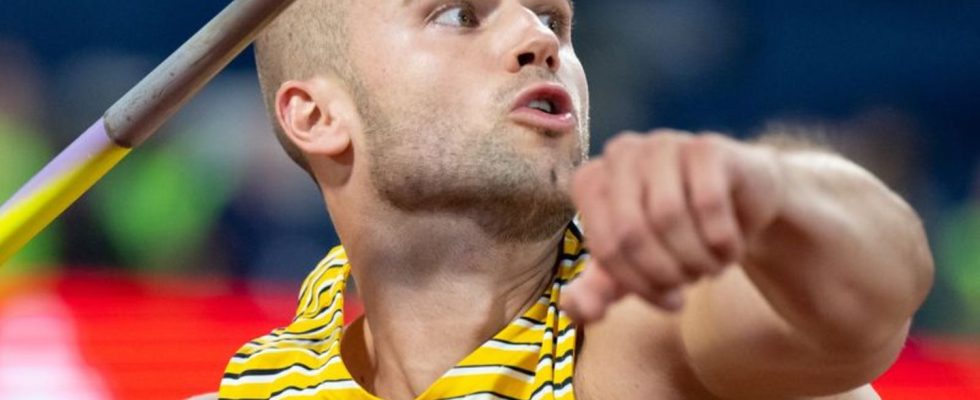European Athletics Team
“Not so much wrong”: DLV sports director sees no crisis
German hope at the European Athletics Team: javelin thrower Julian Weber. photo
© Sven Hoppe/dpa
In 2022, Germany’s track and field athletes will experience a sporty ups and downs, but do not see themselves in a crisis. The team EM at the European Games is the first major test.
Crisis year 2022? The new sports director of the German Athletics Association (DLV) wants to clear up this “wrong assumption” despite the World Cup fiasco in Eugene/USA.
“It was the first year in which a World Cup and a home European Championship took place in one year – three weeks apart,” said Jörg Bügner before the first international appearance at the European Team Championship from Friday to Sunday in Poland Chorzów.
“It’s clear that Eugene didn’t perform well, there’s no doubt about that. The point, however, is that three weeks later there were excellent European Championships in Munich,” he explained: “There can’t have been that much wrong.” Especially since the “emotional highlight” was the European Championships in their own country – and with 16 medals, including seven gold, it was very successful. “The message is: The year 2022 cannot be compared to a year before or after,” emphasized Bügner.
It’s a plausible explanation, but not a convincing justification. At the World Cup, DLV aces only won two medals, fewer than ever. In addition, only seven out of 80 starters made it into the top eight, with 46 of them not making it through the first lap.
“Team EM is very important”
The European Team Championships, held as part of the European Games, are the first test after last year’s ups and downs. “The European Team Championship is of great importance and is an essential part on the way to the World Championships in Budapest in August,” said German head coach Annett Stein.
Germany last won the European Team Championships in 2017. Poland won in 2019 and 2021. It won’t be easy to beat the hosts in front of a home crowd. Many of the top German athletes are not there. Although the DLV sends some European Championship medal winners – led by javelin throwing European champion Julian Weber – into the race, it has to do without numerous other stars.
For the European champions Gina Lückenkemper (sprint) and Konstanze Klosterhalfen (5000 meters) as well as for the runner-up in the pole vault, Bo Kanda Lita Baehre, the World Championships in Budapest have priority. Long jump Olympic champion Malaika Mihambo is not fit enough after a long illness. “Our goal is to finish as far up the field as possible,” said Stein.
In any case, the big position determination will only take place at the world title fights from August 19th to 27th in Hungary’s capital. There it will be seen whether the major reform in the DLV as a result of the World Cup disaster will already provide an upswing and will be a first step towards the big goal: returning to the top five athletics nations by the 2028 Olympic Games in Los Angeles.
Goal: Top 5 of the national ranking
“The goal of being in the top five in the national rankings again in 2028 is an ambitious and challenging goal – no question about it,” said Bügner. “I like goals like that because they challenge you and you have to see where you stand.” There is a lot of know-how in the DLV. “We’re trying to put that into practice in the near future. We’re now trying – to put it bluntly – to get the horsepower onto the road,” announced the doctorate in sports science.
But the World Cup in Budapest shouldn’t just be a way station on the way to LA. “Of course we intend to do much better in Budapest – under completely different conditions, by the way,” he confirmed, referring to the short succession of World Cups and European Championships in one year due to the pandemic. “We always want to be successful. But please keep an eye on the overall structure,” said Bügner.

